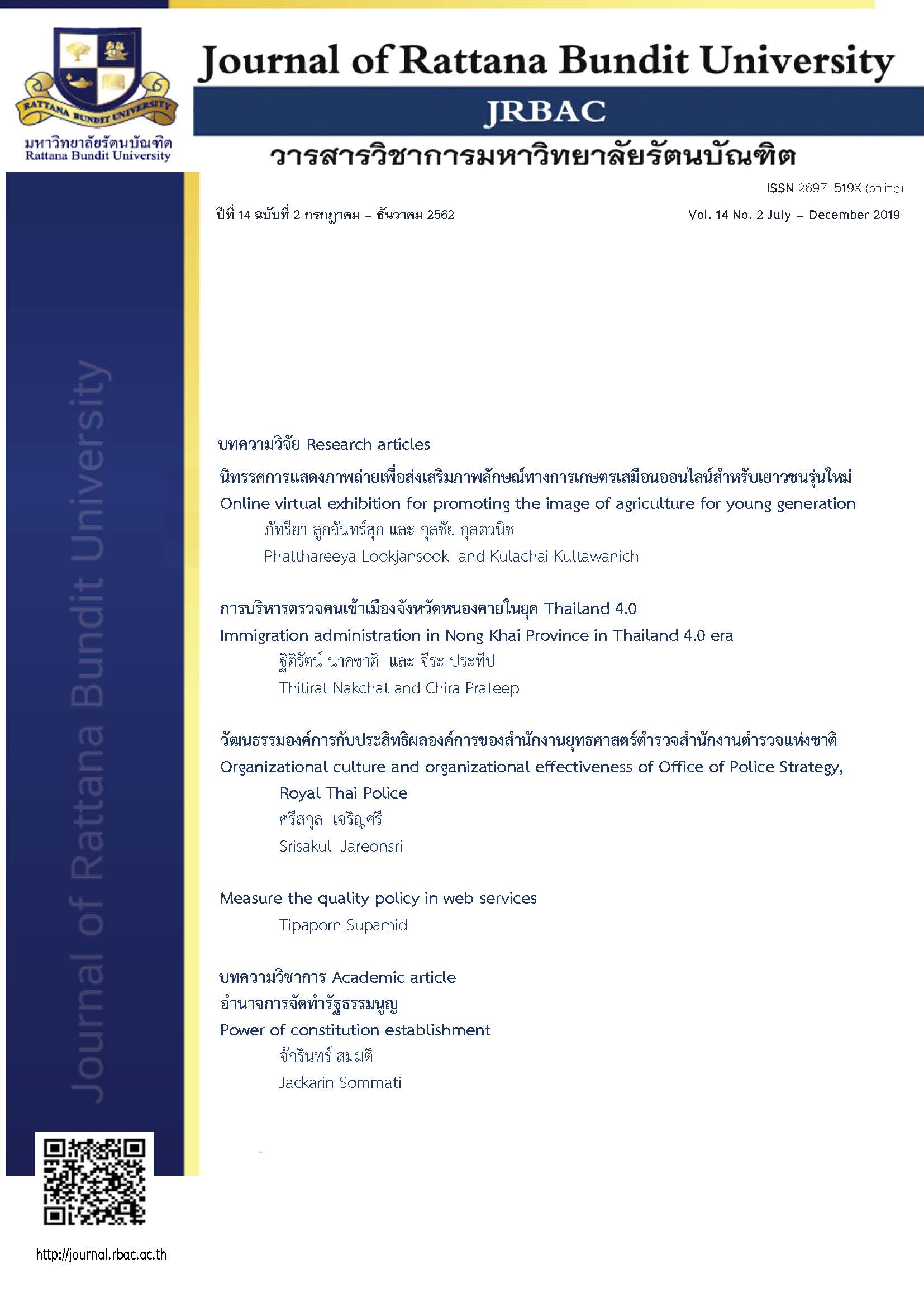Power to create the constitution
Main Article Content
Abstract
The governing of countries in this world is often the only authority within the state. There is no system to check the use of state power. Therefore using the governing power in the wrong way. People joined together to push for a change in the regime and when successful, it is necessary to have a constitution to be used as a structure that defines the organization, the mechanism of national administration.Therefore, the process of creating a popular constitution (constitutionalism) is to create problems and strengthen the strengths of the political, social, economic and constitutional systems of Thailand. The text is compared to the lack of any issues or additional things to be corrected. The method has been done from the past to the present. It cannot be able to solve the real foundation problems of Thai society sustainably. Each country that governs democracy will have the same or similar form of constitution, but for Thailand, the power to create a constitution in the theory of constitutional law, the constitutional power of the constitution is the power that is in parallel with the power to establish the constitution. Because if there is no constitutional organizers then there is no constitutional preparation. Except in some cases the authority provided to the authority for the preparation will be the same person, that is to say “Revolutionary” or coup d’etat successfully. It may take the constitution that they have already prepared to issue in such a case, it is assumed that the constitution arose from the person who have the power to arrange the constitution and the power to make the constitution the same people.
Article Details
References
BBC. (2014). Abraham Lincoln (1809-1865). Retrieved from http://www.bbc.co.uk/history/historic_ figures/lincoln_abraham.shtml
Charernthanawat, K. (2011). Basic principles of public law on state, constitution and law (5th ed.). Bangkok: Vinyoochon. (in Thai)
Deesawat, A. (2018). Thai Constitution Drafting Council. Retrieved from https://library2.parliament.go.th/ebook/content-ebbas/2561-anucha.pdf (in Thai)
Jumpa, M. (2012). Explanation of the constitution of the kingdom of Thailand (2007), Book 1 (3rd ed.). Bangkok: Chulalongkorn University. (in Thai)
Jumpa, M. (2014). Constitutional law (2nd ed.). Bangkok: Nititham. (in Thai)
Kreangam, W. (2013). General knowledge about law, Unit 3. In Teaching documents, Public Law set, Unit 1-7 (56th ed.). Nonthaburi: Sukhothai Thammathirat University. (in Thai)
Luernshavee, P. (2011). Constitutional law and political institutions (9th ed.). Bangkok: Dhurakij Pundit University. (in Thai)
Mewongukote, B. (2012). Constitutional law (6th ed.). Bangkok: Thammasat University. (in Thai)
Office of the Secretariat of the House of Representatives. Academic Services Group 1. (2018). Record important events in preparation The Constitution of the Kingdom B.E. 2017. Retrieved from https://library2. parliament.go.th/ebook/content-ebbas/2561-acd1.pdf (in Thai)
Rousseau, J.J. (2012). Du Contract Social. (Wipada Kittikovit) (2nd ed.). Bangkok: ZD Productions Studio. (in Thai)
Royal Academy. (2013). Royal Institute Dictionary 2011. Bangkok: Royal Academy. (in Thai)
The law dictionary: Featuring Black’s law dictionary free online legal dictionary. (n.d.). (2nd ed.). [website].Retrieved from https://thelawdictionary.org/constitutional-law/


